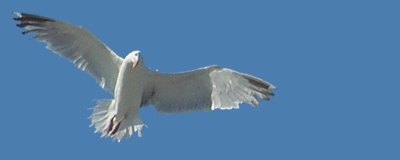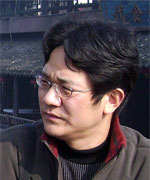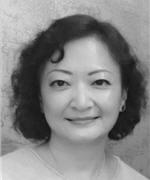|
|
 |
 |

胡弦
Hu Xian
 
胡弦,1966年生于徐州铜山,著有诗集《阵雨》《沙漏》《空楼梯》、散文集《永远无法返乡的人》《蔬菜江湖》等。曾获诗刊社“新世纪十佳青年诗人”称号,《诗刊》《星星》《作品》《芳草》等杂志年度诗歌奖,花地文学榜年度诗歌奖金奖,柔刚诗歌奖,十月文学奖,鲁迅文学奖等。现居南京,江苏作协副主席,中国诗歌学会副会长,《扬子江诗刊》主编。
Hu Xian, born in Tong Shan County, Jiangsu Province in 1966. Editor of The Yangtze Poetry Journal in Nanjing. Member of Writers Association of China. His publications include a book of poetry Ten Year of Light (2007) and Shower (2010). A book of prose: Food and Its Anecdotes (2008). He is the recipient of the following awards: The Top Ten Young Poets of the New Century(2009), The Biennial Top Ten Poetry Award (2010), The Poetry Prize of Wen Yiduo (2011), The Yearly Golden Prize (2011),The Purple Mountain Poetry Award (2011) and many others.
|

|

译者
Translator
谢炯
Joan Xie
  谢炯, 生于上海。八十年代中叶就读于上海交通大学管理系,1988年留学美国,获企业管理硕士和法律博士学位。曾出版诗集《半世纪的旅途》(2015),散文集《蓦然回首》(2016),中文诗集《幸福是,突然找回这样一些东西》(2018), 英文翻译诗集《十三片叶子》(2018)。2017年荣获首届德清莫干山国际诗歌节银奖。诗作及译作发表在《诗刊》、《扬子江诗刊》、美国《诗天空》、《文学交流》等。 谢炯, 生于上海。八十年代中叶就读于上海交通大学管理系,1988年留学美国,获企业管理硕士和法律博士学位。曾出版诗集《半世纪的旅途》(2015),散文集《蓦然回首》(2016),中文诗集《幸福是,突然找回这样一些东西》(2018), 英文翻译诗集《十三片叶子》(2018)。2017年荣获首届德清莫干山国际诗歌节银奖。诗作及译作发表在《诗刊》、《扬子江诗刊》、美国《诗天空》、《文学交流》等。
Joan Xie was born in Shanghai where she attended Shanghai Jiaotong University. She came to the United States in 1988 to study business and law. Her books of poetry and essay collections include Half-Century Journey (2015), Looking Back (2016), Nothing Made Me Happier than Finding These Objects (2018), and Thirteen Leaves (2018). In 2017, she received a Silver award at First Moganshan International Poetry Festival in China. Her poems and translations appeared in Poetry Journal, The Yangtze River Poetry Journal, Exchanges Literature Journal, and Poetry Sky.
|
 |
星相 |
 |
The Movement of Stars |
老木匠认为,人间万物都是上天所赐,
他摸着木头上的花纹说,那就是星相。
我记得他领着徒弟给家具刷漆的样子,某种蓝
白天时什么都能刷掉,到了夜晚,
则透明,回声一样稀薄。
他死时繁星满天。什么样的转换
在那光亮中循环不已?
能将星空和人间搭起来的还有
风水师,他教导我们,不可妄植草木,打井,拆迁,
或把
隔壁的小红娶回家,因为,这有违天意。
而我知道的是,老家具在不断掉漆,
我们的掌纹、额纹……都类似木纹,类似
某种被利斧劈开的东西。
——眺望仍然是必须的,因为
老透了的胸怀,嘈杂过后就会产生理智。
“你到底害怕什么?” 当我自问,星星们也在
朝人间张望,但只有你长时间盯着它,
它才会眨眼-----它也有不解的疑难,类似
某种莫名的恐惧需要得到解释。
|
|
The old carpenter believes all things in the world are God's gifts.
He traces the grain of the wood and says:
This is the movement of stars.
I remember how he taught his apprentice to paint furniture
a shade of blue brushing over anything in the day
but at night, it became transparent, thin as an echo.
The sky was full of stars when he died —
what is transformed into that endless cycle of light?
A fengshui master can also connect stars with the world.
He warned us not to plant trees randomly, drill wells
demolish houses, move house
or marry Xiao Hong next door
but I know the paint on old furniture always peels off.
Our palm lines, forehead wrinkles … like the grain
of the wood split by an ax
— It's crucial to look upward.
After a period of noise, a ripe mind is bound to produce wisdom.
"What're you afraid of?" I ask myself. The stars
gaze down at us, too. If you gaze back long enough,
they will blink — with their perplexities, like
an unfathomable fear that needs to be named.
|
 |
琥珀中的昆虫 |
 |
An Insect in An Amber |
它懂得了观察,以其之后的岁月。
当初的慌乱、恐惧,一种慢慢凝固的东西吸走了它们,
甚至吸走了它的死,使它看上去栩栩如生。
“你几乎是活的,” 它对自己说, “除了
不能动,不能一点点老去,一切都和从前一样”。
它奇怪自己仍有新的想法,并谨慎地
把这些想法放在心底以免被吸走因为
它身体周围那绝对的平静不能
存放任何想法。
光把它的影子投到外面的世界如同投放某种欲望。
它的复眼知道无数欲望比如
总有一把梯子被放到它不能动的脚爪下。
那梯子明亮、几乎不可见,缓缓移动并把这
漫长的静止理解为一个瞬间。
|
|
He knows how to see now, including his own fate.
The slow solidification took away his initial anxiety and fear,
even his death. He looks alive now.
You're almost alive, he tells himself, except
you can't move or grow old; you are just the same as before.
He is surprised that he still has new ideas.
Unable to store them in the absolute stillness around him,
he holds them at the bottom of his heart, so they won't be sucked away.
The light casts his shadow like a desire into the outside world,
his compound eyes see countless desires, for instance:
below his immovable feet, there is always a ladder,
bright, barely invisible, shifting slowly
and mistaking his long stillness for a brief moment.
|
 |
影子 |
 |
Shadow |
—沉默而平静。间或,
用猛烈的摇晃
表达不属于它的焦灼。
当你沉思,它谦逊地
陪着你沉思。
有时,则拉长又拉长,像你留在
生活中的把柄。
但从没有谁能抓住它。
当你起身,它也立即
从复杂的现场抽身离去。
随时变形,并用变形
保留一种很难被理解的真实。
追逐光对你的
每一种叙述;触摸世界以其
万物难以觉察的手,
不被注意,但从未离开,只是你
并不知道这意味着什么。
偶尔,会用突然的站立在墙壁上
迎面出现,
吓你一跳。而当你朝它问询或吼叫,
它却认为:
有声音的事物都是荒谬的。
|
|
-- Still and calm, or occasionally
shakes violently, expressing
an anxiety not its own.
When you are deep in thought,
it accompanies you humbly.
Sometimes, it stretches, longer and longer,
like dirty laundry you left behind in this world
that no one can catch.
When you get up, it also disentangles itself
right away from a complicated setting.
It shapeshifts at any time to preserve
the hard to comprehend truth; it chases each story
that the light tells about you; it touches the world
with its hand hardly discernible by living things.
No one paid attention to it, but it never left. And you
don't know what this means.
Occasionally, it will suddenly appear ahead,
standing on a wall to scare you. But when you question it or bark at it,
it thinks: all the sound-making things are ridiculous.
|
 |
绳结 |
 |
A Knot in the Rope |
绳上有个结。绳子
就是在那里找到自己的。
一个死结。任你怎么用力也无法
把它从里面拉出来。
通常,绳子活在一根平滑的线上。
但它内心起了变化,一个结
突然变成身体陌生的部分,被缚住,
并于绷紧中一再被确认。
如同连自身
也不肯放过的仇恨,这用力
拉拽过的结已很难凭回忆解开。
——它认出了思虑无法捕捉的东西,
束紧它,不松开。
|
|
There's a knot in the rope. Rope
finds itself here.
A dead knot. No matter how hard you try,
no way to free it up.
Typically, the rope leads a life of smooth lines
but its heart has changed, a knot
then suddenly becomes a strange body part, tied up
and repeatedly confirmed in its tightness.
As if the hatred must
hate itself, and this forcefully pulled knot
can't be untied by memory.
-- it recognizes something uncatchable by thought,
ties it up, and won't let it go.
|
|
|







